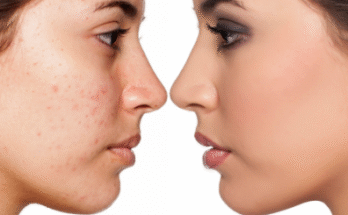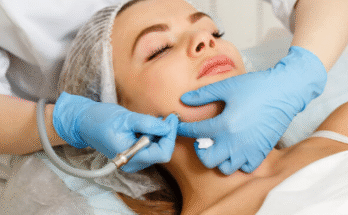Cleansing is one of the most important parts of any skincare routine, especially for those who struggle with acne-prone skin. While acne can be caused by many factors such as hormones, genetics, or lifestyle, proper cleansing helps reduce excess oil, dirt, and impurities that contribute to breakouts.
At the same time, it is important not to overdo it, because harsh cleansing can strip the skin of its natural balance and make acne worse. Finding the right way to wash your face may seem simple, but doing it correctly can make a big difference over time.
This guide will walk you through how to cleanse acne-prone skin properly, what to avoid, and how to support your skin so that it feels healthier, calmer, and more balanced.
Why Cleansing Matters for Acne-Prone Skin
Acne-prone skin tends to produce more sebum, the natural oil that keeps the skin protected and hydrated. When this oil combines with dead skin cells or environmental impurities, it can clog pores and create the perfect environment for breakouts. Cleansing removes those impurities and gives your skin a fresh start. However, if cleansing is done too aggressively or with the wrong products, it can strip away too much natural oil, leading to dryness and irritation. In response, the skin may produce even more oil, and this cycle can make acne worse. That is why learning the right method is essential.
Choose the Right Cleanser
The first step to cleansing properly is choosing a gentle cleanser designed for acne-prone skin. Look for formulas labeled as non-comedogenic, which means they will not clog pores. Gel and foaming cleansers often work well for oily or acne-prone skin, while cream cleansers may be more suitable for those who deal with both acne and dryness.
Ingredients such as salicylic acid or benzoyl peroxide can be helpful if you experience frequent breakouts, as they target clogged pores and bacteria. However, not everyone needs these active ingredients every day. Sometimes, a simple fragrance-free gentle cleanser is enough. The key is finding what works best for your skin without causing irritation.
Wash Your Face Twice a Day
It might feel tempting to wash your face several times throughout the day, especially if your skin feels oily. But washing too often can upset your skin’s natural barrier and make matters worse. The ideal routine is to cleanse your face twice daily: once in the morning and once at night. Morning cleansing removes sweat and oil that build up overnight, while evening cleansing gets rid of makeup, sunscreen, and impurities from the day.
If you work out or sweat heavily during the day, a gentle cleanse afterward can be helpful. In that case, stick to mild cleansers to avoid stripping your skin.
Use Lukewarm Water
Hot water may feel relaxing, but it is not friendly to acne-prone skin. High temperatures can strip away protective oils and leave your skin irritated and dry. On the other hand, cold water may not effectively remove oil and buildup. Lukewarm water is the best choice. It cleanses gently without stressing the skin.
Be Gentle with Your Skin
Scrubbing your skin harshly does not mean you are cleaning it better. In fact, rough scrubbing can cause irritation, redness, and even small cuts that make acne worse. Instead, use your fingertips to massage your cleanser in gentle circular motions for about 20 to 30 seconds. This is enough time for the cleanser to dissolve oil and impurities without damaging your skin.
After cleansing, rinse thoroughly with lukewarm water to make sure no residue is left behind. Pat your face dry with a clean, soft towel. Avoid rubbing the towel against your skin, as friction can be irritating.
Avoid Harsh Soaps or Alcohol-Based Products
Regular bar soaps or products with high alcohol content may feel like they are removing oil, but they often disrupt the skin barrier and lead to more breakouts over time. Stick with cleansers that are specifically made for the face and are gentle enough for daily use.
Support Cleansing with the Right Routine
Cleansing alone is important, but pairing it with a simple skincare routine enhances results. After cleansing, apply a lightweight, non-comedogenic moisturizer. Many people with acne-prone skin skip moisturizer because they think it will make their skin more oily, but the opposite is true. Moisturizers help maintain the skin barrier and prevent excess dryness, which can reduce the likelihood of breakouts.
Using sunscreen in the morning is also key. Some acne treatments can make the skin more sensitive to the sun, and sun damage can lead to dark spots after pimples heal. Choose an oil-free sunscreen designed for acne-prone skin.
Know When to Exfoliate
Exfoliation helps remove dead skin cells that can clog pores. However, over-exfoliating can harm acne-prone skin. Limit exfoliation to one or two times a week, and choose gentle chemical exfoliants like those containing salicylic acid or lactic acid instead of harsh scrubs. Exfoliating too often or with abrasive particles can irritate the skin and worsen acne.
Lifestyle Habits that Support Clearer Skin
While cleansing is central, lifestyle habits also make a difference. Always remove makeup before going to bed so it does not clog your pores overnight. Wash pillowcases and towels regularly, since they collect oil, sweat, and bacteria that can transfer back to your skin. Keeping hands away from your face also helps reduce the spread of dirt and germs.
Eating a balanced diet, staying hydrated, and managing stress can support skin health from within. Although food is not the sole cause of acne, some people notice improvement when they limit overly greasy or sugary foods. Everyone’s skin is unique, so paying attention to what triggers your breakouts is helpful.
When to Seek Professional Guidance
If you find that cleansing and over-the-counter products are not improving your acne, it may be time to consult a dermatologist. A professional can assess your skin type and recommend treatments that are stronger or more targeted. Acne is a very common condition, and there is no need to feel discouraged if your skin needs more support than a simple routine can provide.
Building a Routine That Lasts
The most important thing to remember is consistency. Cleansing properly is not about scrubbing harder or using dozens of products. It is about treating your skin gently, choosing the right products, and sticking to a routine you can maintain. Results do not appear overnight, but with regular care, your skin will have a better chance to heal and look clearer.
Final Thoughts
Cleansing acne-prone skin properly is both an art and a science. It is about finding balance: removing excess oil and dirt without stripping the skin, washing regularly without overdoing it, and using products that care for the skin barrier. By choosing a gentle cleanser, using lukewarm water, and sticking to a simple but consistent routine, you can support your skin’s health and reduce the cycle of breakouts. Pairing this with good lifestyle habits and professional advice when necessary will help you feel more confident in your skin.

